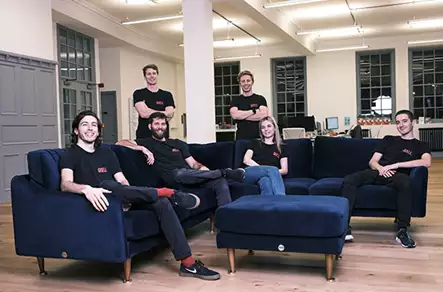Light engineering is an important industrial sub-industry and provides services to a huge range of sectors including power, consumer goods and manufacturing. Demand is therefore consistent and strong, but light engineering is very competitive, particularly for British companies competing with counterparts throughout Europe and the Far East. Start-up costs can also be high. However, finding a niche can help new companies establish themselves.
What is light engineering?
Light engineering is differentiated from ‘heavy’ engineering in that it generally does not involve the direct use of raw materials, instead performing work using existing pre-fabricated products e.g. computer chips. Steelmaking is a heavy engineering industry, while producing steel doors from existing steel would be light engineering. Other potential light engineering sectors include building car engines or computer speakers.
Another way the two are often separated is that light engineering is less capital-intensive and more consumer-orientated than heavy engineering, which generally produces goods for other businesses.
Generally speaking the heavy manufacturing industries are dominated by larger players as there is often significant cost involved when extracting raw materials and turning these into more commercially appealing forms. SMEs are very common in light engineering sectors, particularly in smaller niches where it’s easier and cheaper to become established, although you will often also encounter subsidiaries of larger companies.
Why start a light engineering company?
As the demand for consumer goods increases, the need for light engineering also increases. The diversification of product lines means that there are a growing number of niches in light engineering that require specialist knowledge i.e. it would be difficult for one company to cover several niches. As such, there are often opportunities for new players to establish themselves.
There’s plenty of room for growth in light engineering; you can branch out to new products or new types of products to increase revenue streams, and there are obvious routes to growth once you have the money to expand (such as increasing your output).
Light engineering is also labour-intensive, giving you plenty of opportunity to engage the local economy with employment opportunities.
What types of light engineering are there?
Light engineering typically refers to manufacturing that turns pre-fabricated goods into saleable products. So, clothes production is light engineering because materials such as wool and cotton are turned into garments. In reality there are huge numbers of potential types of light engineering – every industry in which products are produced (i.e. not service-based industries) will involve a degree of light engineering.
Some potential light engineering sectors include:
- Toys and games
- Doors and shelves
- Home appliances
- Consumer electronics
- Shoes
What skills will I need?
Considerable knowledge of your sector will obviously be essential so experience in a light engineering company making the same type of products will be useful. You’ll need to know your product(s) and the market inside out, and be aware of your audience and how it may change over defined time periods. This is especially important in fast-changing industries such as consumer electronics.
Price margins are important in light engineering making a network of contacts useful, as well as the ability to haggle with suppliers and distributors.
People management skills are also essential; as said, light engineering is labour-intensive and so you’ll need a strong team from the outset that works well together and can communicate well with the management team.
Insurance and compliance
Insurance is essential in light engineering companies because of the high-risk nature of the industry i.e. your products will see mass use, and this increases the chances of things going wrong. Public liability insurance and professional indemnity insurance are obvious necessities but there may be others depending on your niche – speak to a professional insurer before continuing.
Employer’s liability insurance is essential – you may need a tailored policy from a dedicated insurer because employees working in factories are often more prone to industry than if they were, for example, working in offices.
Depending on which industry you work in, there is likely to be compliance around the products you put out. For example, if you are engineering toys you will need to be aware of the Kitemark and the Lion mark as many retailers will look for these marks before taking new products.
Fire regulations are also important – for example, many retailers will not take wood products that are covered in paints that aren’t flame retardant. Products that break down to create choking hazards are also very risky.



